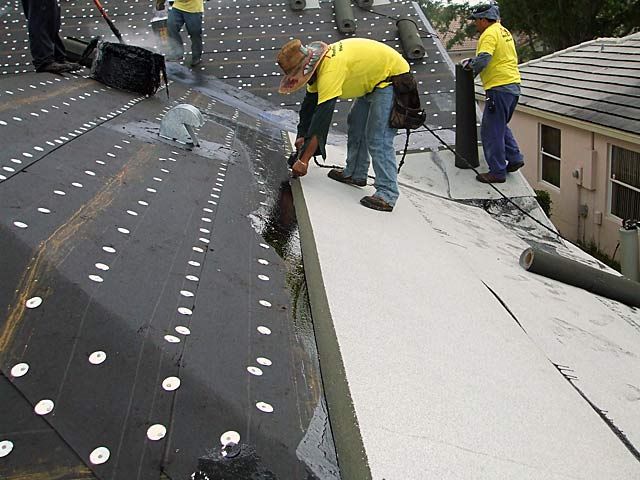The Definitive Advantages and Cons of DIY Roofing: What You Need to Know

When it comes to home maintenance, the roof is one of the most important components that commonly gets overlooked. A properly cared for roof provides safeguarding against the elements and ensures the well-being and coziness of your home. However, just like other aspects of your house, roofs have a lifespan and eventually need repair or upgrading. Understanding when it's time for a new roof can protect homeowners from larger damage and expensive repairs down the line.
In the last few years, DIY roofing has gained popularity among homeowners who want to take matters into their own hands. While the temptation of saving money and learning a new skill can be attractive, DIY roofing comes with both pros and cons that must be thought through. From selecting the right materials to knowing when to call in a professional, this article will discuss what you need to know about DIY roofing and help you make knowledgeable decisions about your roofing project.
Grasping Roof Substitution
Renewing a roof is a major outlay for every homeowner, and comprehending the method is essential. The initial stage in roof replacement is to determine when it's time to take action. Homeowners should look out for signs such as missing shingles, water stains on ceilings, or overabundant granule loss in gutters. Knowing how long roofs last, based on their substance, can as well assist in determining the right time for replacement. Various materials, like tar, metal, or tile, each have their specific lifespan and offer different advantages and disadvantages.
When contemplating roof replacement, it is essential to carry out thorough research about multiple roofing materials and styles that match your home. Factors such as environment, design preferences, and budget play a critical role in this decision. For case in point, asphalt shingles are popular for their budget-friendly nature and ease of installation, while metal roofing provides robustness and energy efficiency. Homeowners should consider the pros and cons of each material, taking into account how they correspond with long-term investment goals.
The actual roof replacement operation includes steps like choosing a reliable roofing contractor, acquiring necessary permits, and organizing for installation disruption. Homeowners should be knowledgeable about what to expect during roof installation, including the dismantling of the old roof and the installation of replacement materials. Moreover, grasping the significance of proper ventilation and insulation during this process can substantially lengthen the life of the new roof and enhance its performance.

DIY vs. Expert Roofing
Choosing between Self-Performed roofing and employing a professional can be a challenging choice for homeowners. On one hand, tackling roofing projects individually can save costs and give you a feeling achievement. However, roofing is a involved task that necessitates particular skills and knowledge. Many property owners may misjudge the challenges involved, resulting in potential mistakes that could jeopardize the roof's.
Engaging a skilled roofing expert provides experience to the project. These contractors understand the details of multiple roofing types, installation techniques, and regional building codes. check my site have the tools and equipment needed for the job, ensuring the work is done effectively and to standard. While this may come at a increased cost, the comfort knowing the roof is installed or fixed by a experienced professional often surpasses the initial savings of Self-Performed work.
Ultimately, the right decision depends on personal circumstances. If you are knowledgeable and assured in your skills, a Do-It-Yourself approach may be suitable for small repairs. However, for larger roofing projects or if you're unsure, it may be wiser to talk to contractors who can give a warranty of their work. This decision can affect your roof’s duration and effectiveness, influencing your home's total security and appraisal.
Roof Care and Durability
Regular roof maintenance is crucial to extend the durability of your roofing system. Homeowners should examine their rooftops at least two times a year, ideally in the early spring and autumn, to identify any concerns in time. Look for displaced shingles, signs of wear, and potential drips. Keeping gutters free of debris and ensuring proper drainage can also avoid water damage, which is a primary factor of roof decline. Taking the time to address little issues can save a lot of money down the track.
Knowing the durability of your roofing material is essential for proper maintenance. Various materials, such as asphalt shingles, steel, or ceramic tiles, have disparate longevity, determining how often you should book check-ups or replacements. For instance, asphalt shingles typically last 20-30 years, while metal roofs can last 50 years or more with proper care. The knowledge of material lifespan helps property owners plan for future expenses and organize potential replacement timelines successfully.
In conclusion, investing in expert roof assessments and care can further enhance the lifespan of your roof. Experienced roofing contractors can discover issues that may not be apparent to the layperson, such as compromised flashing or structural concerns. They can also advise appropriate maintenance practices tailored to your specific roofing type. By focusing on consistent inspections and maintenance, you ensure that your roof stays in peak condition throughout its life cycle.
